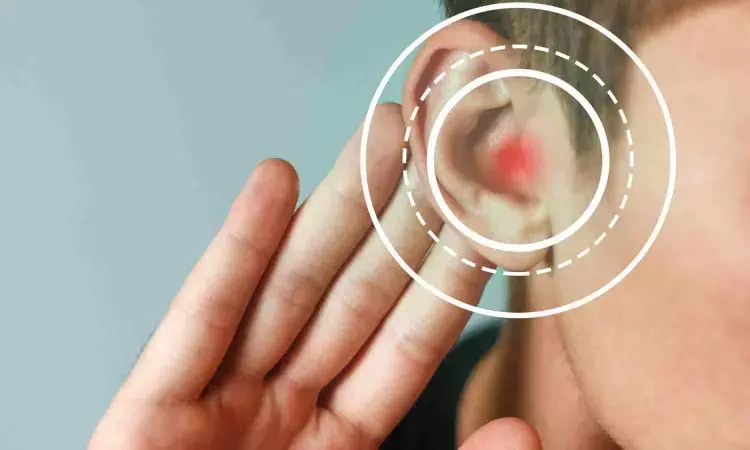- Home
- Medical news & Guidelines
- Anesthesiology
- Cardiology and CTVS
- Critical Care
- Dentistry
- Dermatology
- Diabetes and Endocrinology
- ENT
- Gastroenterology
- Medicine
- Nephrology
- Neurology
- Obstretics-Gynaecology
- Oncology
- Ophthalmology
- Orthopaedics
- Pediatrics-Neonatology
- Psychiatry
- Pulmonology
- Radiology
- Surgery
- Urology
- Laboratory Medicine
- Diet
- Nursing
- Paramedical
- Physiotherapy
- Health news
- Fact Check
- Bone Health Fact Check
- Brain Health Fact Check
- Cancer Related Fact Check
- Child Care Fact Check
- Dental and oral health fact check
- Diabetes and metabolic health fact check
- Diet and Nutrition Fact Check
- Eye and ENT Care Fact Check
- Fitness fact check
- Gut health fact check
- Heart health fact check
- Kidney health fact check
- Medical education fact check
- Men's health fact check
- Respiratory fact check
- Skin and hair care fact check
- Vaccine and Immunization fact check
- Women's health fact check
- AYUSH
- State News
- Andaman and Nicobar Islands
- Andhra Pradesh
- Arunachal Pradesh
- Assam
- Bihar
- Chandigarh
- Chattisgarh
- Dadra and Nagar Haveli
- Daman and Diu
- Delhi
- Goa
- Gujarat
- Haryana
- Himachal Pradesh
- Jammu & Kashmir
- Jharkhand
- Karnataka
- Kerala
- Ladakh
- Lakshadweep
- Madhya Pradesh
- Maharashtra
- Manipur
- Meghalaya
- Mizoram
- Nagaland
- Odisha
- Puducherry
- Punjab
- Rajasthan
- Sikkim
- Tamil Nadu
- Telangana
- Tripura
- Uttar Pradesh
- Uttrakhand
- West Bengal
- Medical Education
- Industry
Review Sheds Light on the Role of Gene Therapy in Treating Genetic Hearing Loss

India: Gene therapy is emerging as a promising treatment for hearing loss, a condition that affects millions worldwide. In a recent review published online in Apollo Medicine, Dr. Santosh Kumar Swain from the Department of Otorhinolaryngology and Head and Neck Surgery in All India Institute of Medical Sciences, Sijua, Patrapada, Bhubaneswar, Odisha, India, explored the potential of gene therapy in managing sensorineural hearing loss (SNHL).
Speaking to Medical Dialogues, Dr. Swain highlighted the significance of this research, emphasizing how gene therapy aims to replace, edit, or suppress defective genes to restore hearing function.
Currently, cochlear implants are the primary treatment for severe to profound hearing loss, but they are expensive and have limitations in replicating natural hearing. Dr. Swain explained that gene therapy could offer a less invasive and potentially curative alternative by addressing the root cause rather than merely compensating for the impairment. This approach could revolutionize hearing restoration by targeting genetic mutations responsible for inherited hearing impairments and improving outcomes for patients with non-genetic hearing loss.
Treating SNHL remains a significant challenge due to the irreversible nature of inner ear damage. Despite advancements in hearing aids and cochlear implants, these solutions still fall short of providing optimal sound quality. Dr. Swain pointed out that issues such as impaired speech perception in noisy environments and limited appreciation of music continue to pose challenges. Gene therapy, by directly modifying genetic defects, offers a novel solution to these limitations, potentially providing long-term improvements in auditory function.
The review discusses the role of screening approaches and next-generation sequencing technologies in diagnosing hearing loss caused by genetic mutations. By utilizing viral and non-viral vectors, researchers are exploring ways to deliver therapeutic genes to target cells, aiming to preserve or restore hearing. However, translating this research into clinical practice requires overcoming several obstacles. Dr. Swain noted that one of the biggest challenges is the need for interventions to be administered within a critical therapeutic time window. Additionally, improving the specificity of gene delivery, optimizing viral vectors, and understanding immune responses remain key areas of research.
Further studies are necessary to address concerns regarding the long-term effectiveness and safety of gene therapy. Researchers are working to enhance the durability of treatment effects, expand the capacity of viral vectors, and mitigate potential side effects. Dr. Swain emphasized the importance of continued investigation to establish standardized protocols and ensure safe clinical application.
Gene therapy holds promise not only for individuals with genetic hearing loss but also for those with age-related or noise-induced hearing impairment. Dr. Swain highlighted that exposure to high-intensity noise can damage spiral ganglion neurons, affecting complex sound processing. Future therapeutic strategies should, therefore, target not just hair cells but also peripheral ribbon synapses and auditory neurons.
As research progresses, gene therapy may become a widely available and transformative treatment for hearing loss. While challenges remain, ongoing advancements bring the field closer to developing a safe, effective, and long-lasting solution. Dr. Swain concluded that with further clinical trials and technological improvements, gene therapy has the potential to significantly enhance the quality of life for individuals with hearing impairments.
Reference:
Swain SK. Gene Therapy for Hearing Loss: A Review. Apollo Medicine. 2024;0(0). doi:10.1177/09760016241286276
Dr Kamal Kant Kohli-MBBS, DTCD- a chest specialist with more than 30 years of practice and a flair for writing clinical articles, Dr Kamal Kant Kohli joined Medical Dialogues as a Chief Editor of Medical News. Besides writing articles, as an editor, he proofreads and verifies all the medical content published on Medical Dialogues including those coming from journals, studies,medical conferences,guidelines etc. Email: drkohli@medicaldialogues.in. Contact no. 011-43720751


